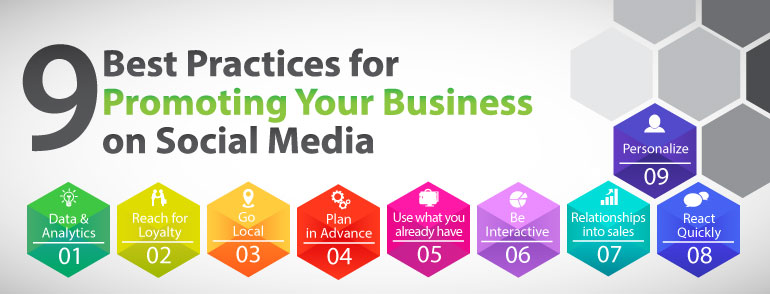Social media can be tough to tackle for any business, but especially for smaller ones that can’t afford to hire a social media specialist. Simply broadcasting advertisements on Twitter and Facebook is not going to attract or engage followers. Truly taking advantage of social media requires time, effort, and an understanding of the platforms.
Here to help you out is Dovev Goldstein, CEO of Moment.me, a provider of social media marketing solutions. Goldstein shared several best practices for effective social media:
- Use data and analytics.
Try to glean as much insight as possible from not only your followers but also all social media users who mention your company. You’ll probably need to use some sort of tool, but you should try to determine things like who is regularly posting about your business, who has a lot of followers, and who made a one-time purchase from you and could benefit from some incentive to make a repeat purchase. - Reach for loyalty, not millions.
Instead of trying to go viral, SMBs should aim for acquiring a smaller number of loyal followers. You should also think of social media relationships as real-life relationships, which take a long time to form and solidify. “Social media marketing can provide great ROI, but it won’t necessarily provide immediate value, and as an SMB with limited resources, it will be more effective to invest consistently small amounts of time over a longer period than putting all your efforts into one huge campaign,” Goldstein says. - Go local.
If you have a physical location, use social media to reach nearby consumers with targeted content. You can also reward customers who visit the location and check in on social media. “Location-based marketing is becoming increasingly popular and with good reason, but this is a way for you to harness the power of your local customer base without implementing a costly mobile solution,” Goldstein says. - Plan in advance.
Set up a content calendar so that you’re not scrambling to figure out what to post every morning. Take advantage of holidays like Christmas and Valentine’s Day as well as niche days that are related to your company. So if you’re a small bookstore, make sure to be active on social media during Banned Books Week. - Use what you already have.
Leverage content you’ve already created or that your customers have produced. This will make your life easier while including other voices and engaging followers. - Be interactive.
Post things like quizzes or polls to engage followers. Or maybe run a live Q&A or a competition. “Social media is still a relatively new space, and there is room for you to get creative in the kind of content and outreach you do, so don’t be afraid to take risks,” Goldstein says. - Turn the relationships into sales. Once you’ve established connections with followers, you can start to drop in offers to turn social media activity into online and offline sales. You can even personalize offers to specific social media in a hyper-targeted manner.
- React quickly.
Hopefully you’ll be receiving positive feedback on social media, but chances are you’ll also get a lot of complaints. It is crucial that you act quickly and respond to these complaints. “The fact that they have taken the time to complain at all means there is a chance to address their concerns and repair your reputation,” Goldstein says. “Most importantly, by responding quickly (and you’ll have to, considering that the average tweet has a lifetime of 18 minutes), you build up an image of a business owner who cares about each customer and who can respond honestly to feedback and criticism by making changes.” - Personalize.
It’s important to not only personalize offers and tweets to individual customers but also to also personalize your business and give it character. Being authentic is key in successful social media. “Your greatest asset as a small business owner is yourself,” Goldstein says. “People create relationships with people, not with a soulless brand, so ‘personalize’ yourself as the voice of your business online and people will be more likely to trust, like, and ‘like’ you.”
Originally posted at inc.com on 8 Dec 2014 by Rebecca Borison.
